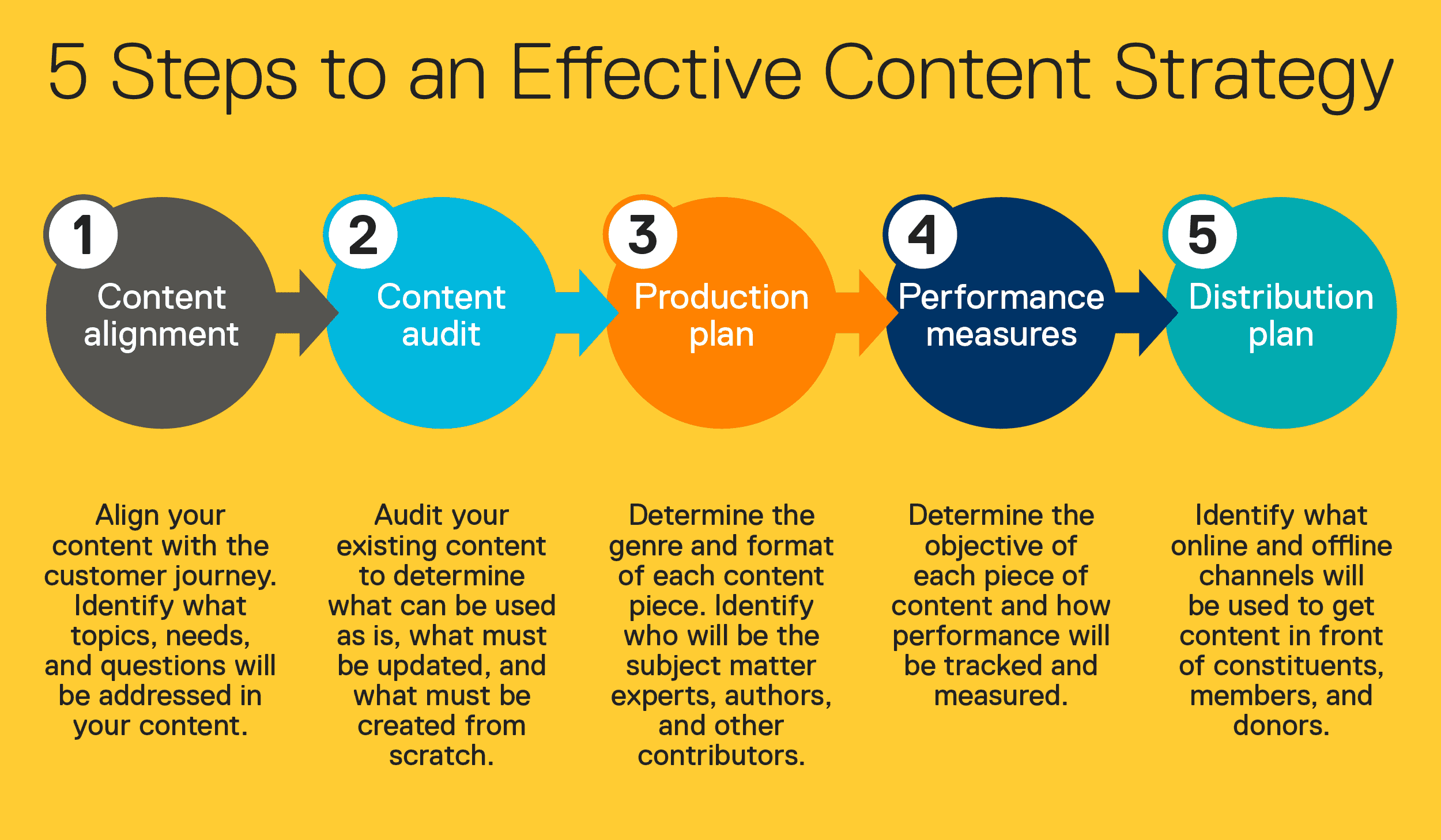The essential distinctions between Content Strategy Vs Content Marketing go well beyond a nice metaphor. Your efforts to produce and distribute content could be much more effective both in theory and in practice if you are aware of the differences between a content marketer and a content strategist.
What is Content Marketing?
Content marketing can be viewed as a component of your overall content strategy. The Content Marketing Institute states that “content marketing is a strategic marketing approach focused on creating and distributing valuable, relevant, and consistent content to attract and retain a clearly defined audience and, ultimately, to drive profitable customer action.”
Who Will Create Your Content?
If you’re a tiny business or working alone, this may be a straightforward response. You’ll frequently spend many late nights writing excellent content yourself. Other times, you might be assembling an internal team, employing freelancers or content strategists, or deciding who should be on your ideal team of collaborators.
Even if you may believe you already know the solution, it’s still important to consider it. Keep in mind that finding an authority to write content on their area of expertise is always better.
When Will You Create the Content?
Simple question, but one that should be asked. Creating a content calendar that details the forthcoming weeks, months, and perhaps the entire upcoming year is frequently your best course of action. Examine your own website’s past traffic, as well as that of your competitors, and take into account when they typically release new content. Use tools like Google Trends to detect cycles and seasons. The timing of a piece of content creation is crucial to its success.
Aspirational vs. Analytical
Marketing and content strategists both balance rationality and creativity in their work. Both team members are responsible for controlling each other. For instance, to create a lookalike demographic for a social media or email outreach campaign, a demand generation manager may need to exercise their logic skills. The content strategist would intervene and concentrate on the human aspect of outreach, giving the demand gen manager’s viewpoint a critical eye.
Serving Separate Purposes
As you can see, your content strategy and content marketing initiatives overlap significantly, but they nevertheless serve different functions.
The whys and hows that guide each piece of content you’re going to produce are outlined in your content strategy. While the procedures used to produce and market that content make up content marketing.
One of the main reasons why just 30% of organizations claim their content marketing efforts are successful is that many brands immediately start distributing material without ever pausing to consider the underlying strategy.
Implementing both short- and long-term content strategies will enable you to create a focal point based on your content marketing objectives.
How Can You Develop a Successful Content Strategy?
The elements of an effective content strategy have been covered. We’ll now walk you through the simple six-step process of making one. A small- or medium-sized corporation can produce content that is specific to its target market, corporate objectives, and available resources by taking these aspects into account. At the same time, it can make sure that its message has the most possible impact.
Final Reflections
To create comprehensive, integrated campaigns, content and marketing strategists collaborate. For a narrative and storytelling experience to be continuous, both perspectives are required. Both bolster each other’s deficiencies and build on each other’s strengths. Although the two roles are separate, they are connected.
FAQ
1. What sort of marketing uses content?
Media like newsletters, podcasts, social media posts, and videos are examples of content marketing. Each of these content types aims to please users and draw them to your business by offering pertinent and useful information.
2. What is SEO or content marketing?
Compared to your content marketing plan, your SEO strategy is far more technical. To be found at the top of search engine results pages (SERPs), it relies on optimizing content with keywords, although it truly only scratches the surface of SEO tactics. Compared to content marketing, SEO has more structure.
3. What constitutes content marketing’s foundation?
The Key to a Brand’s Social Media Success Is in the Content Pillars:
Content pillars are a collection of themes or subjects that your brand can utilize to develop articles in the context of social media marketing. These topics, also known as “buckets,” are particular to your brand and need to represent the material that your online audience finds most engaging.
4. What does content marketing aim to accomplish?
The goal of content marketing is to create and distribute valuable, timely, and consistent material in order to draw in and keep the attention of a target audience and, ultimately, to encourage profitable consumer action.
5. What are the 80/20 marketing rules?
The Pareto Principle in business describes how only 20% of a company’s customers typically account for 80% of its revenue. Business owners who follow the 80/20 rule are aware that concentrating their marketing efforts on the top 20 percent will yield the best results.
6. What are content strategy’s three Cs?
The Three Cs of Content Strategy: But the plan is where things get a little trickier. Whatever you’re planning, I think there are just three things you can modify in terms of content strategy. Content, channels, and contributors are all words that begin with the letter “C”.
7. What does content strategy aim to accomplish?
Having a content plan can help you establish priorities and clarify your marketing goals. It enables you to organize your work and make sure that every marketing initiative is guided by goals. You can make sure that every effort made by your team yields noticeable benefits by having a written content plan.
8. Is the planning of content a skill?
It’s imperative to be able to express your ideas clearly on content objectives, audience demands, feedback on content production, and strategy. Additionally, strategists must collaborate with others on tasks like content production. It is essential for leaders to explain the “why” behind a strategy to their employees and stakeholders.

